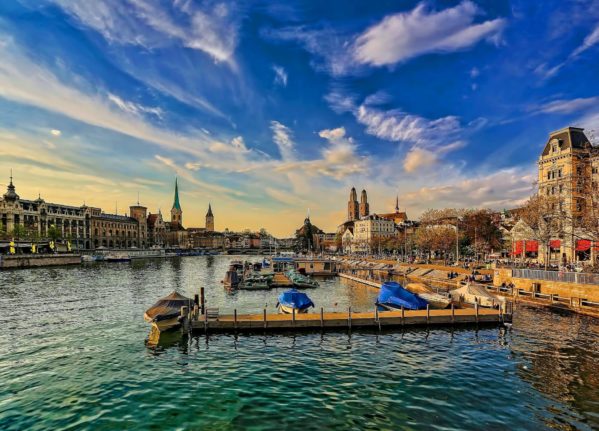“Germany enjoyed a summer-like spring in 2011,” said DWD meteorologist Uwe Kirsche in a statement.
“No spring on record has brought more sunshine, and only the spring of 2007 was warmer. Indeed, the months of March, April and May haven’t seen such little rainfall since 1893,” he added, citing the data of approximately 2,000 weather stations administered by the DWD.
The average temperature in Germany this spring was 10.1 degrees Celsius – 2.4 degrees higher than normal – with Berlin and Rhineland-Palatinate the driest and warmest regions.
Since temperature tracking began in 1881, spring this year was only surpassed by 2007 (10.6 degrees), despite evening frost this year that continued well into May.
Click here for a photo gallery of the hot spring weather
The mercury is expected to stay high early this week until thunderstorms and showers roll across much of the country.
Warm temperatures will prevail across Germany Monday afternoon, with temperatures climbing to a sweltering 32 degrees in some regions. Heat thunderstorms could affect the extreme south, but the rest of the country will remain dry.
Sudden changes are expected Monday night, though.
As high pressure system “Birgit” moves toward eastern Europe, low pressure system “Yves” will move in, bringing cooler air and showers to western Germany. Thunderstorms in the Rhineland could continue into Tuesday morning.
“Yves” will then cover most of Germany over the course of Tuesday, with a band of clouds reaching the east by midday. The storms could grow in intensity throughout the day, with extreme weather possible in the southwest.
But sustained rainfall could offer respite to farmers who have suffered through an unusually arid spring.
Before the thunderstorms arrive Tuesday, the weather will be hot, reaching 30 degrees in the east, while the west will see milder temperatures between 15 and 20 degrees.
On Tuesday night, there will be steady rainfall in the south and east, while the west will remain dry under the influence of a new high pressure system.
This system will spread across Germany over the rest of the week, bringing balmy temperatures of 25 to 30 degrees to most regions, while the extreme south will remain under cloud cover with thunderstorms possible.
Click here for The Local’s weather forecast.
The Local/adn





 Please whitelist us to continue reading.
Please whitelist us to continue reading.
Member comments